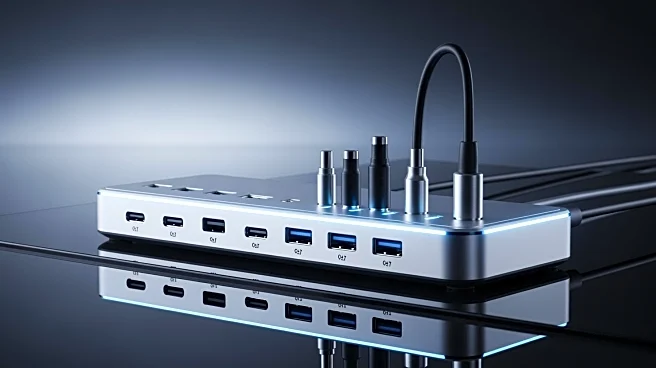What's Happening?
The U.S. health care system is facing a significant trust crisis, exacerbated by the rise of wellness influencers on social media platforms like TikTok, YouTube, and Instagram. These influencers often promote wellness products and rituals that claim to
improve health, contributing to a multitrillion-dollar industry. However, many of these influencers lack medical credentials, and their content can spread misinformation. This situation is compounded by the fact that over 100 million Americans face barriers to accessing primary care, leading them to seek health information online. The decline in trust in institutional expertise, fueled by scandals in the pharmaceutical and food industries, has further driven people towards alternative sources of health advice.
Why It's Important?
The growing influence of wellness influencers poses a risk to public health as they can disseminate misinformation that may lead individuals to make health decisions without proper medical guidance. This trend is particularly concerning for vulnerable groups, such as women and BIPOC communities, who already face challenges in accessing trustworthy health care. The decline in trust in traditional medical institutions could lead to an increase in self-diagnosis and self-treatment, potentially resulting in adverse health outcomes. The situation underscores the need for improved access to reliable health care and better regulation of health-related content on social media.
What's Next?
Efforts to combat misinformation include initiatives like Fides, a network of health care professionals providing evidence-based content. Social media platforms are also implementing policies to address misleading content. However, the challenge remains significant, as misinformation can spread rapidly and is often more engaging than factual content. The health care industry and tech companies must collaborate to enhance digital literacy and ensure that accurate health information is accessible to the public.
Beyond the Headlines
The ethical implications of wellness influencers' impact on health care are profound. The ease with which misinformation can be spread online highlights the need for stricter regulations and accountability for influencers. Additionally, the reliance on social media for health information reflects broader societal issues, such as the lack of access to affordable and reliable health care. Addressing these challenges requires a multifaceted approach involving policy changes, education, and community engagement.















